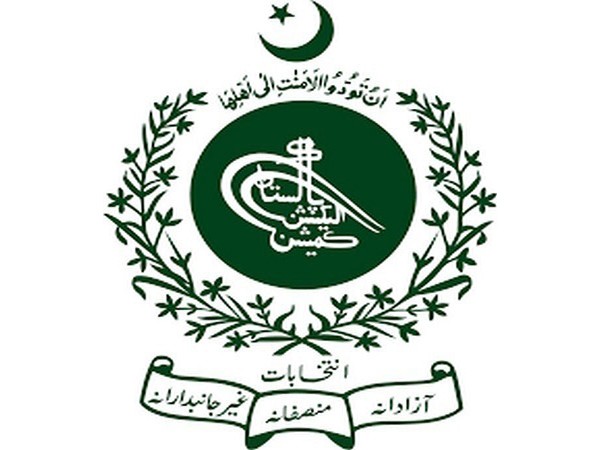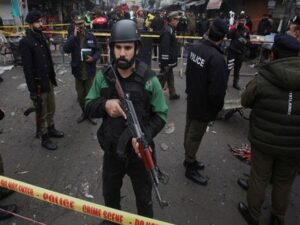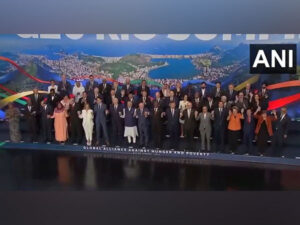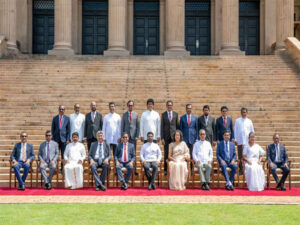
Islamabad [Pakistan], May 13 (ANI): The Election Commission of Pakistan (ECP) on Monday suspended the lawmakers elected on seats denied to the Sunni Ittehad Council (SIC). The Pakistan electoral watchdog’s decision comes after the Supreme Court announced its verdict on reserved seats, Pakistan-based ARY News reported.
According to the notification, 44 members of the ruling Pakistan Muslim League – Nawaz (PML-N) have been suspended, while 15 lawmakers from the Pakistan Peoples Party (PPP), 13 from Jamiat Ulama-e-Islam Fazl (JUI-F) and one each from MQM-P, Istehkam-e-Pakistan Party, and Awami National Party, Pakistan Muslim League and Pakistan Tehreek-e-Insaf Parliamentarians, have been suspended.
As many as 21 lawmakers on reserved seats for women and four for minorities in Khyber Pakhtunkhwa have been denotified. As many as 24 women lawmakers and 3 non-Muslim legislators have been de-notified in the Punjab Assembly, according to ARY News report.
The ECP denotified two female lawmakers and a minority member in the Sindh Assembly. On May 7, a three-member SC bench led by Justice Syed Mansoor Ali Shah suspended the Election Commission of Pakistan (ECP) and Peshawar High Court’s (PHC) verdict on Sunni Ittehad Council (SIC) reserved seats.
Shah stated that suspension verdict of the court applies to the allocation of additional seats. He said that people’s mandate should be represented correctly in Parliament, ARY News reported.
Pakistan’s election commission distributed the reserved seats for women and minorities among other political parties. According to the notification, the ECP allocated one reserved seat each to Jamiat Ulema-i-Islam Pakistan, Pakistan Muslim League-Nawaz (PML-N) and Pakistan People’s Party (PPP) in the Khyber Pakhtunkhwa Assembly.
PPP leaders – Samita Afzal and MQM-P’s Fouzia Hameed have been elected on reserved seats. Furthermore, PPP leader Sadhu Mal alias Surinder Valasai secured minority seat in Sindh Assembly.
The Pakistan electoral watchdog allocated three reserved seats for minorities to PML-N, PPP and JUI-F – which were claimed by the Sunni Ittehad Council. PPP leader Ramesh Kumar, PML-N leader Neelam Meghwar and JUI-F’s James Iqbal were elected on the minority seats.
In the elections held in Pakistan, PTI candidates contested the polls as independents after the apex Court upheld the election supervisor’s decision, considering its intra-party polls “unconstitutional” and revoked its claim on the electoral symbol of ‘bat’.
According to the constitution, the reserved seats are allocated to the political parties based on the number of their lawmakers elected on the reserved seats. For their allocation, Pakistan’s electoral watchdog had already received the priority list of candidates from the parties before the elections held on February 8, ARY News reported.
This year, the situation is different from the previous polls, as the largest group of lawmakers are independents, who cannot have reserved seats. A total of 346 seats are reserved for women – 60 in the Pakistan’s National Assembly and 66, 29, 26, and 11 in the provincial legislatures of Punjab, Sindh, Khyber Pakhtunkhwa and Balochistan.
Moreover, there are 10 reserved seats for minorities in the lower house. Apart from this, there are eight, nine and three reserved seats for minorities in the Punjab, Sindh, and Balochistan assemblies, respectively. (ANI)



















